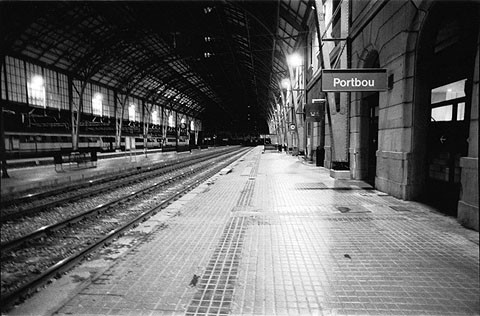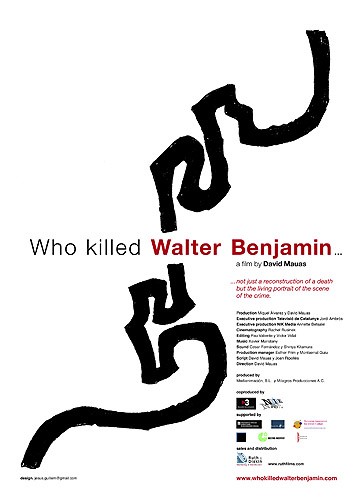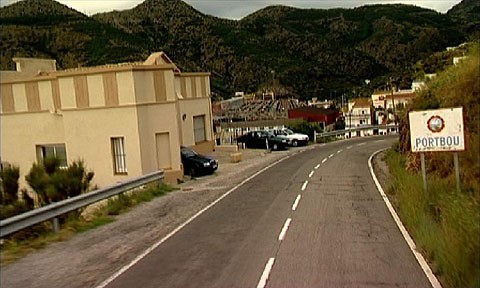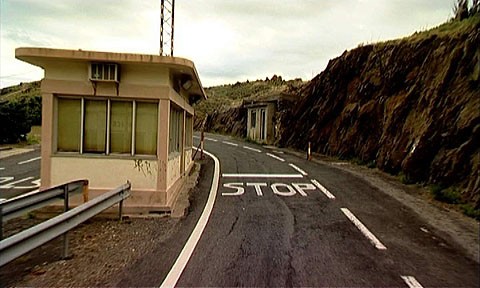In September 1940, after seven years of exile, Walter Benjamin crosses the Pyrenees in a desperate attempt to escape the Nazis. According to the official version, Walter Benjamin did make it across the French –Spanish border successfully. But when he arrives in the Catalan town of Portbou, a sudden change in legislation impeded his entry into Spain and he was obliged to spend the night at a local hotel under the close vigilance of three guards, whose orders were to deport him the following morning. In utter despair, Benjamin took his own life, swallowing and overdose of morphine. The local doctor, however, declared it a natural death and Benjamin was given a Catholic burial in the municipal cemetery, under a wrong name. Did the doctor conceal some hidden cause of Benjamin’s death? Was there really a change of legislation? Was Walter Benjamin aware that Portbou was a pro-Franco town virtually occupied by the Nazis? WHO KILLED WALTER BENJAMIN…reaches for answers among the suspicious circumstances of his death. Giving at the same time, a portrait of a frontier town anchored between two fronts, constant witness of evasion, persecution and false hopes. WHO KILLED WALTER BENJAMIN…not just a reconstruction of a death, but the living portrait of the scene of the crime.
Synopsis
In September 1940, after seven years of exile, Walter Benjamin crosses the Pyrenees in a desperate attempt to escape the Nazis. According to the official version, Walter Benjamin did make it across the French –Spanish border successfully. But when he arrives in the Catalan town of Portbou, a sudden change in legislation impeded his entry into Spain and he was obliged to spend the night at a local hotel under the close vigilance of three guards, whose orders were to deport him the following morning. In utter despair, Benjamin took his own life, swallowing and overdose of morphine. The local doctor, however, declared it a natural death and...
Awards
- European Association for Jewish Culture, 2005
Festivals
- Montenegro Int'l TV Film Festival, 2009
- Eiszeit Kino, Berlin, 2008
- Palermo Documentary Film Festival, Italy, 2007
- Centro Mazziano Verona, Italy, 2007
Press & Links:
"In a documentary with airs of Mulholland Drive, the director David Mauas narrates his personal investigation, sometimes obsessive, on the circumstances that are surrounding the death of the German philosopher. Many testimonies entwine, from town neighbors to specialists, who reveal an evidence: it is not possible to prove in an irrefutable way that Walter Benjamin commited suicide"
El Punt (Spain)
“Mauas takes the camera and rolls and rolls. Lets speak those who had listen the story from others, those who lived in that time and remember (...) Walter Benjamin is always present in the film, although his image hardly appears. He lives in others, in their memories or in their imagination...”
El Pais Semanal (Spain)
"The result is a ' film noir' that moves between a classic documentary and the video art. In ' Who killed Walter Benjamin... ' not only is reconstructed the death of the writer but also is recreated 'the scene of crime'"
La Vanguardia (Spain)
“With persistence Mauas seizes new relevant details from witnesses of that time which until now has been ignored by the international Benjamin research”.
Die Tageszeitung (Germany)
“This film is an event, because it reveals how the mysterious death of a German thinker converts a little village of the Catalan Pyrenees to a crossroad of European history”
Deutschland Radio (Germany)
"Perhaps the first ever film noir intellectual historical film, Mauas’ documentary is at once beguiling and enlightening”
W.J.F.F catalogue, USA
Festivals
- Montenegro Int'l TV Film Festival, 2009
- Eiszeit Kino, Berlin, 2008
- Palermo Documentary Film Festival, Italy, 2007
- Centro Mazziano Verona, Italy, 2007
- Modena Cinema, Italy, 2007
- Fellini Foundation, Rimini, Italy, 2007
- Liberia Bibli Cultural Center, Roma, 2007
- Turin National Film Museum, Italy, 2007
- Fratelli Marx Cineclub, Bologna, Italy, 2007
- The Screening Room, Washington DC, USA, 2007
- Limiares Film Festival, Lisbon, Portugal, 2007
- Biblioteca Nacional de Espa?a, Madrid, Spain, 2007
- Premi Ciutat de Terrassa de Cinema, Terrasa, 2007
- The Jacob Burns Film Center, USA, 2007
- Westchester Jewish Film Festival, USA, 2007
- Jerusalem Jewish Film Festival, Israel, 2006
- Washington Jewish Film Festival, USA, 2006
- Barcelona Jewish Film Festival, Spain, 2006
- Mar del Plata International Film Festival, Argentina, 2006
- Malaga International Film Festival, Spain, 2006
- Spanish Film Festival in Toulouse, France, 2006
- Tel Aviv Cinematheque, Israel, 2006
- Benjmin Festival, Berlin Branderburgische Akademie, Germany, 2006
- Hoogt Film Theater, Utrecht, The Netherlands, 2006
- Atlantico Festival of Cinematography, Alcances, Spain, 2006
- Mantova Festival Latteratura, Italy, 2006
- Valencia Institute of Modern Art, Spain, 2006
- Goethe Institute, Barcelona, 2006
- Barcelona Goethe Institute, Spain, 2006
Educational
- University of South California
- University of Texas at Austin
- Yad VaShem Visual Center
- University of South Florida
- NYU
- BJE Jewish Community Library
- Denison University
- Ohio State University
- Arizona State University
- Western Michigan University
- Columbia University
- Northern Essex Community College
- Stanford University
- Amherst College Library
- UC Berkley University
- Yale University
- Harvard University
- Rayerson College
- Maryland University
- St. John York University, UK
- Monash University, Australia
- Heinrich-Heine University, Dusseldorf, Germany, 2008
- Goethe Institue, Madrid, 2007
- Culturgest, Lisbon, 2007
- NCSAD University, Canada, 2007
Awards
- European Association for Jewish Culture, 2005




